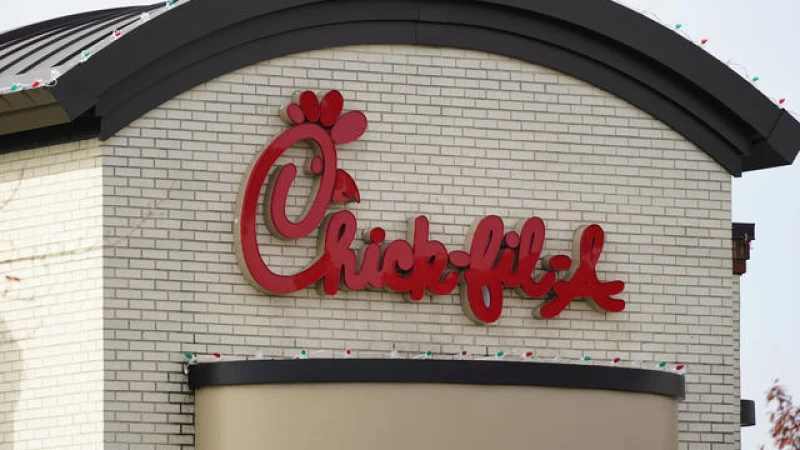Chick-fil-A has decided to change its approach regarding antibiotics in its chicken. The fast food chain announced that starting this spring, it will permit the use of chicken that may have been treated with antibiotics.
Back in 2014, Chick-fil-A declared its commitment to a "No Antibiotics Ever" (NAE) standard, ensuring that the company would only use chickens raised without any antibiotics.
However, the company is now transitioning to a "No Antibiotics Important To Human Medicine" (NAIHM) standard. This new standard allows for the use of antibiotics to treat sick animals, but restricts the use of antibiotics that are crucial for human medicine and commonly used to treat people.
Chick-fil-A has assured customers that they will still be served "real, white breast meat with no added fillers, artificial preservatives, or steroids." The chickens will continue to be sourced from farms that adhere to Chick-fil-A's Animal Wellbeing Standards, ensuring that the animals are U.S.-hatched and raised, provided with nutritional food, and housed in temperature-controlled barns.
While government agencies such as the Food and Drug Administration and U.S. Department of Agriculture permit the use of antibiotics in animals destined for food consumption, there are regulations in place governing the use of these medications.
These remedies are able to combat infections in animals - much like they do in humans. However, the use of antibiotics can lead to certain bacteria becoming resistant or unresponsive, a phenomenon known as AMR, as stated by the FDA.
"Food animals may harbor bacteria, such as Salmonella and Campylobacter, which can cause illness in people. When animals are administered antibiotics, resistant bacteria in their intestines can persist and proliferate," explains the CDC.
This implies that when these animals are processed for meat, the meat may become contaminated with these bacteria. Humans can fall ill from these resistant bacteria by handling raw or undercooked meat and poultry or consuming other food items that have been in contact with animal waste, including water sources.
Nonetheless, antibiotics remain effective treatments for animals, when used responsibly. The FDA has devised an antibiotic stewardship program with the goal of minimizing the likelihood of animals developing resistance. Livestock owners are encouraged to administer antibiotics only when necessary to address animal illnesses and to utilize vaccines to decrease future antibiotic requirements.
In order for birds used for meat to be slaughtered, the USDA requires them to undergo a "withdrawal" period after receiving antibiotics. This is to ensure that no antibiotic residues are present in the bird's system before slaughter. The USDA's Food Safety and Inspection Service conducts random sampling and testing for residues, with data showing a very low percentage of violations.
Tyson, a major producer of chicken products, announced last year that it would no longer adhere to the NAE (No Antibiotics Ever) standard. Instead, Tyson will only use antibiotics that are not medically important for humans in its chicken production, as reported by the Wall Street Journal.
On the other hand, companies like Perdue are continuing to use the NAE label for their products.







